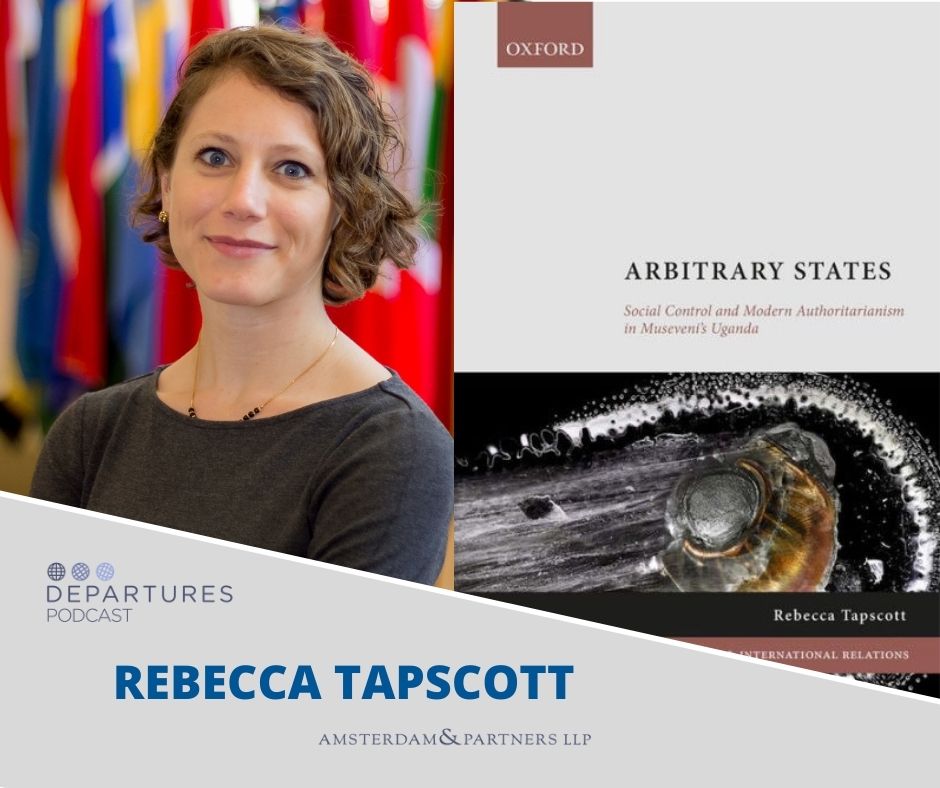Departures Podcast with Rebecca Tapscott, author of ‘Arbitrary States: Social Control and Modern Authoritarianism in Museveni’s Uganda’

Yoweri Museveni’s 35 years of iron-gripped ruthless authoritarianism in Uganda did not take place in a vacuum. It has instead been a years-long process of converting the country’s institutions into instruments of arbitrary power, which has been fueled by a series of targeted moves to destabilize the social coordination that would be needed to hold leadership accountable.
This has been the fascinating focus of research for Prof. Rebecca Tapscott, a visiting fellow at the University of Edinburgh’s Politics and International Relations Department. She joined the Departures with Robert Amsterdam podcast this week to discuss her book, “Arbitrary States: Social Control and Modern Authoritarianism in Museveni’s Uganda.”
Tapscott explains that for Uganda, among other countries with nationalist movements which took power, it is crucial that there is a high level of “unpredictability and arbitrariness” which shapes people’s experience of how the state works, how they experience security and justice. Her research takes an interesting look into the functioning of hybrid regimes, where some vestigial presence of democratic institutions continue to exist but are largely rendered ineffective in terms of successful opposition organizing.











